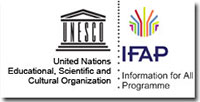Rationale
The Internet has become communication and networking tool of significant importance for the 21st Century. With several billions of people worldwide using Internet, it can be considered as phenomenon that has a dimension of a revolution.
Rapid development of Internet technologies is providing us with infinite access to information that exists, and is increasingly created, and is overwhelming. Internet is changing the way we relate to each other and the whole world. Now, we have access to people and information never before available. Grandparents are staying in contact with grandchildren. From the Earth we are able to communicate with astronauts; we can watch live streaming of expedition at the outskirts of the civilisation; rare animals and plants on inaccessible places for humans, processes and events in inhospitable environments for humans; we can watch live performances of celebrities we admire; play online games; have fun.
On the other hand, nothing can be 100% safe and secure, so we need to be aware of the risks on which we are exposed while being online. There are number of challenges that today’s Information Society is posing in front of us: invalid information, online stalking, online bullying, Internet dumping, violation of intellectual property rights, violation of privacy of personal information, identity theft, various kinds of computer viruses, and many, many more.
In order to prevent Internet users to be exposed on the above risks, ethical usage of Internet technologies is of paramount importance for all Internet users. UNESCO made pioneering actions in this area and developed crucial documents: “Code of Ethics for the Information Society”, and “Ethical Implications of Emerging Technologies: A Survey”.








